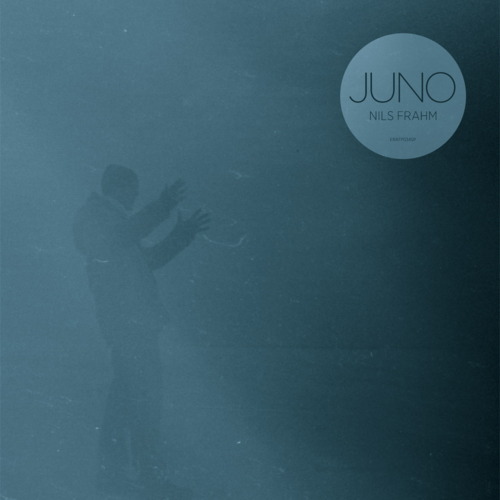The goal of this site is share some of our favorite music with people, and help the artists to spread their work. If you like the music you downloaded here please support the artists and buy it. If you (artists or labels) don't think that this is an appropriate way to do it just ask it and I'll remove the links.
jueves, 22 de diciembre de 2011
Sean McCann - Sincere World
lunes, 19 de diciembre de 2011
Grouper & Ilyas Ahmed - Visitor
lunes, 5 de diciembre de 2011
Ólafur Arnalds - Living Room Songs
sábado, 3 de diciembre de 2011
Andrew Pekler - Sentimental Favourites
Max Richter - Perfect Sense OST
There isn´t a buy link because there is no fisical release. If you want it you have to buy it on Itunes. Sorry.
viernes, 2 de diciembre de 2011
Hauschka - Youyoume Ep
the limited edition. Read their news and support them.
domingo, 27 de noviembre de 2011
Richard Knox & Frederic D. Oberland - The Rustle of the Stars
sábado, 26 de noviembre de 2011
Stephan Mathieu - To Describe George Washington Bridge
Genre: Ambient, Electronic, Drone
Label: Dekorder
Buy
Hear
domingo, 20 de noviembre de 2011
Nest - Body Pilot
Label: Serein
sábado, 19 de noviembre de 2011
Lee Noble - Horrorism
jueves, 10 de noviembre de 2011
Ben Fleury-Steiner - The Places That Find You
miércoles, 9 de noviembre de 2011
Nils Frahm — Juno 7"
Review made by Tomas, from MusicAddicted
martes, 8 de noviembre de 2011
Leyland Kirby - Intrigue and Stuff Vol. 3
domingo, 6 de noviembre de 2011
Leyland Kirby - Intrigue & Stuff - Vol. 2
sábado, 5 de noviembre de 2011
Nicholas Szczepanik - Candor of Night
miércoles, 19 de octubre de 2011
Benoît Honoré Pioulard - Plays Thelma

Label: Desire Path Recordings
Web
Review from Textura.
domingo, 25 de septiembre de 2011
Alexander Turnquist - Hallway of Mirrors

sábado, 10 de septiembre de 2011
Talvihorros - Descent Into Delta

sábado, 3 de septiembre de 2011
Leyland Kirby - Eager To Tear Apart The Stars

miércoles, 31 de agosto de 2011
James Blackshaw - Holly Ep

Genre: Experimental, Folk
Label: Important
MySpace
Buy
miércoles, 29 de junio de 2011
Nicholas Szczepanik - Not Knowing (For Eliane Radigue)

jueves, 23 de junio de 2011
Marsen Jules Trio - Les Fleurs Variations

miércoles, 22 de junio de 2011
Nicholas Szczepanik - Amaranthine

viernes, 29 de abril de 2011
Leyland Kirby - Intrigue & Stuff (Vol. 1)

sábado, 23 de abril de 2011
Kaboom Karavan - Barra Barra

With Kaboom Karavan it’s hard to know quite where to start – the Belgian collective led by Bram Bosteels have a history in theatre, film and contemporary dance, but that doesn’t really help shine a light on their music. They have collaborated with musicians all over the world including Miasmah’s very own Kreng, and released a debut album on Mexico’s Umlo imprint, but again this probably only gives a small indicator of what the collective actually sound like. There is something effortlessly surreal about the band, and surrealism is an aspect of art often attempted and very rarely perfected. Here Bosteels abuses his choice of instruments (and players) to the point where the listener would barely be able to place which instruments were being used at all, in fact at times you’d be hard pressed even to place what sort of music it was. Through a haze of pizzicato strings, clouds of sullen reverberation and clamorous percussion you get the feeling that you have been catapulted into a universe just outside of perception; somewhere cold and unforgiving where regularity is turned upside down just to toy with our strict ideas of reality. Jazz and Dadaism might be the cornerstones of ‘Barra Barra’ but these disparate influences are twisted and melted beyond recognition leaving only remnants on the finished product.
Bosteels and his band of collaborators have brought to life music steeped in surrealism which brings to mind This Heat’s classic album Deceit, but crossed with something different and yet more dark, like a musical version of cult television show The League Of Gentlemen.
The album, indeed each track within Barra Barra, weaves together many threads of sound and, occasionally, melodies, so that it is difficult for one to follow what instrument is being played most of the time. Opener Lentetooi is centred around a tune worthy of a child’s musical box, but this is offset with sinister mutterings, arranged with flute and strings in a method as to invoke a gleeful discomfort. Following piece Koboi is centred around relaxed guitar riffing in a slow and awkward rhythm. As the key refrain repeats again and again, the background is taken up by field recordings of indeterminate source, adding a texture and depth to a track which, if stripped down to just guitar, would be very minimal. Moving ahead a few tracks, the atmospheric Parka is more heavily led by captured sounds and the way in which they are employed brings to mind something of Graham Lambkin & Jason Lescalleet. It’s a beautiful piece and again highlights Kaboom Karavan’s knack for creatively bringing together many elements in a way which is anything but typical.
‘Barra Barra’ is a complex album which takes patience to navigate through; you could hear the German clanking pre-industrialism of Einsturzende Neubauten, the slow brooding doom of Bohren & Der Club of Gore and the stuttering abstraction of Black To Comm yet it still feels fresh and distinctly current. Unusually the most fitting comparison might be the work of the Brothers Quay, as the ticking, creaking, stuttering songs feel perfectly matched with these flickering, haunted images. This is what makes the album such an appropriate addition to the Miasmah canon, and one that will haunt your dreams (and nightmares) for months to come.














